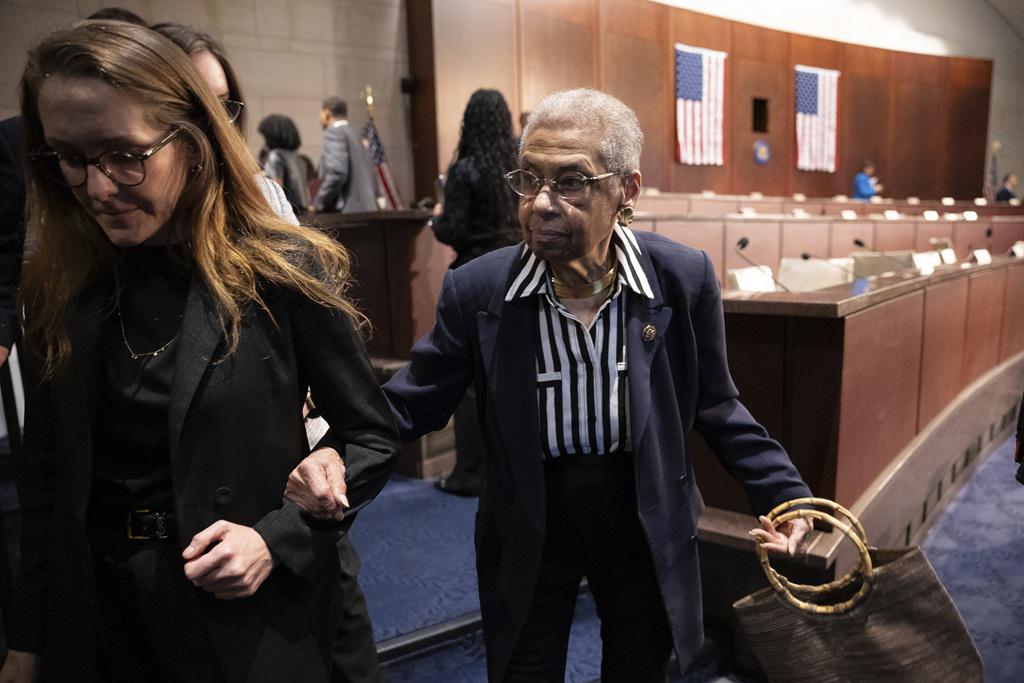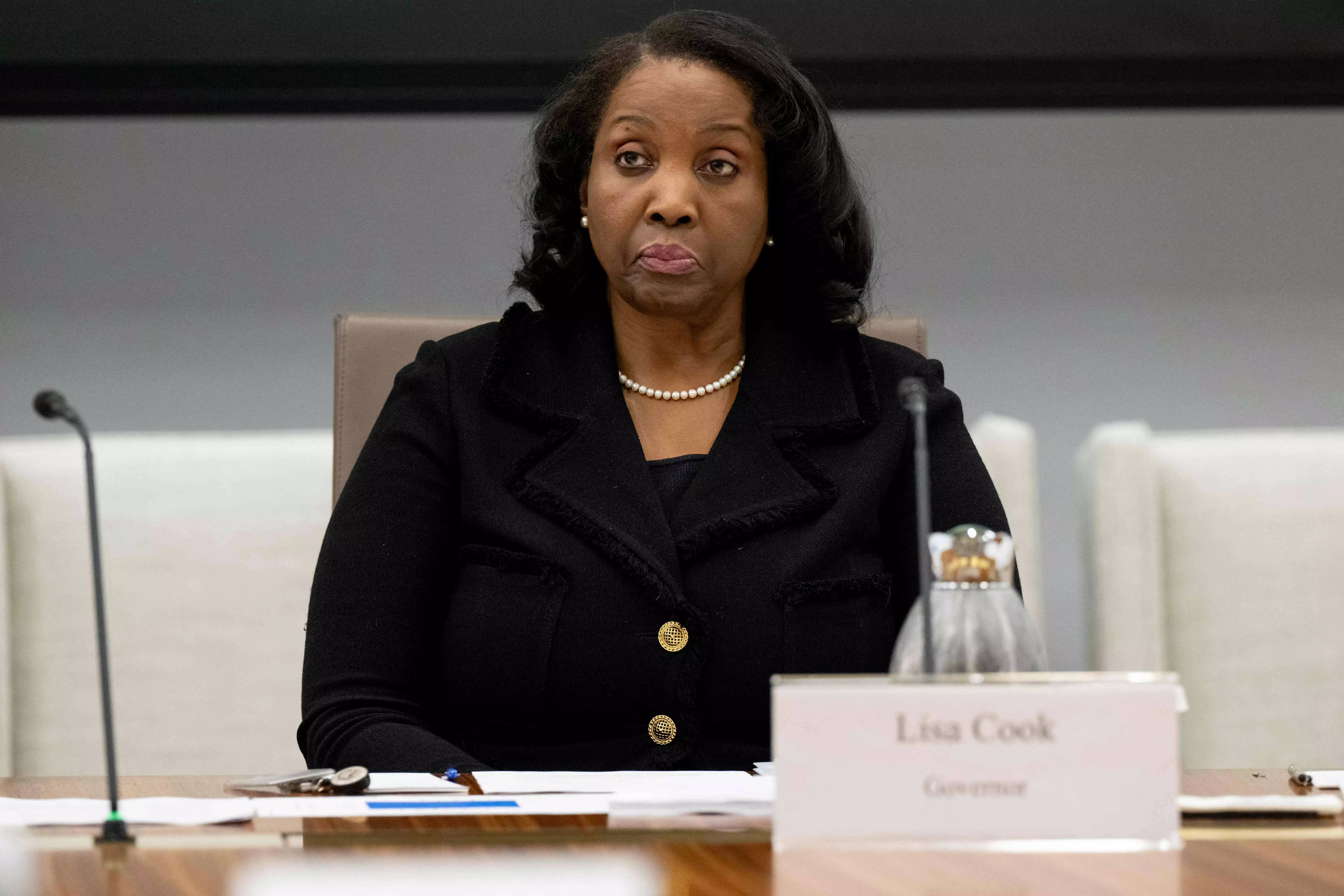By Gabrielle Gurley
Copyright prospect

House Republicans have unleashed their latest Trojan horse on the nation’s capital, namely law enforcement and criminal justice “reforms” that promise to erode civil rights in Washington, D.C., and end up injuring and incarcerating more African Americans and Latinos. Over the course of two days this week, the GOP majority passed bills to allow 14-year-olds charged with major offenses to be tried as adults, prohibit judges from applying discretion in youth sentencing, relax police car chase rules, and axe a nomination commission for local judges.
National Guard troops have been in the city since mid-August, with another two and a half months to go, ostensibly to help the local police keep order in one of the world’s “most dangerous cities.” Regular patrols may take place on the National Mall, long one of the safest places in America, but on the ground that mission has taken on caretaker overtones, with soldiers mulching flower beds and collecting trash in parks, reconnoitering on Metro, and trying to ignore anyone playing the Imperial March from The Empire Strikes Back.
Welcome to the erasure of home rule in the District of Columbia. Subjecting the city to the same “move fast and break things” ethos that has pulverized and paralyzed the federal government demands something much more than the traditional pleas for statehood that Republicans and Democrats alike have ignored for decades. But as the anger with the Trump administration surges in the real Washington, so does local impatience with the one person representing the District’s hometown interests in Congress.
Del. Eleanor Holmes Norton (D-DC), the city’s 88-year-old representative in the House, has been in office for more than three decades and has repeatedly insisted that she plans to run for re-election in 2026. Considering the obvious signs of her political ineffectiveness and physical frailties, there are flashing red lights pointing toward retirement rather than another run for office.
A major challenger emerged Thursday when D.C. City Councilmember Robert White Jr. jumped into the race. Among the growing list of candidates lining up for the seat, he is the one opponent who should force Norton to think twice about what’s bound to be a grueling campaign. At the age of 43, the comparatively youthful White has worked for Norton as legislative counsel, considers the delegate a mentor, and met with her about his challenge.
In a short video announcement, White ticked off the city’s grievances: militarized policing, stolen tax dollars, and terrorized neighborhoods “with no end in sight.” He praised Norton, the “lion on the Hill,” as he called her, but stressed that D.C. needs its “strongest fighters right now.”
It’s no surprise that the ambitious politician wants to move on after nearly a decade on the city council, one failed attempt to unseat D.C. Mayor Muriel Bowser, and his votes against the stadium that the D.C. Council approved this week for the NFL’s Washington Commanders.
The Trump administration’s assaults on the District’s autonomy haven’t sparked any kind of sustained pushback from Norton.
Norton’s decline over the past several years has been sobering and very public. Earlier this week, she gamely read brief prepared-for-delivery remarks on the D.C. crime bills, each time in a monotone devoid of the passion one might expect when your life’s work is under siege. The civil rights stalwart’s observations on the bills’ harms were serviceable but repetitive, devoid of the urgency that the city’s political crisis demands.
She ended the week with a House Oversight Committee hearing on the District, featuring Bowser and other officials tackling hostile, softball, and supportive questions on the multimillion-dollar policing surge. She read another prepared statement after asking only one question, “Why should D.C. be a state?”
On the same day that the House took up the D.C. bills, Donna Brazile, the former Democratic National Committee chair, and more importantly, Norton’s former campaign manager and chief of staff, stepped up to make plain that the District’s crisis requires a reset. “After doing so much for D.C. for so long, it’s understandable that she wants to remain in Congress,” she wrote in a Washington Post op-ed. “Public service is her life. But no job can last forever, and no person is irreplaceable. As I’ve told her in person, retirement from Congress is the right next chapter for her.” That column was a riff on a sentiment she shared in the spring when she told The New York Times that Norton should take the “opportunity to help the District write a new chapter.”
The D.C. crisis is the country’s ultimate leadership challenge. But instead of embracing next-generation politicos, some House Democrats and national party officials seem to have spent an inordinate amount of energy avoiding Zohran Mamdani endorsements and orchestrating David Hogg’s defenestration, and far less on trying to solve the problems posed by Democratic gerontocracy’s octogenarians and the leadership vacuum facing some 700,000 Americans living in the District.
The Trump administration’s assaults on the District’s autonomy haven’t sparked any kind of sustained pushback from Norton. She doesn’t have the vigor or the drive of a Bernie Sanders, who is just four years younger. Then there are the examples her own peers have set: Justice Ruth Bader Ginsburg and Sen. Dianne Feinstein (D-CA) both remained on the job until their deaths following their very public declines, while President Biden’s failure to retire early enough to allow a Democratic primary will be endlessly debated as long as there are books to be written about it.
Norton may insist that’s she running, but her staff has had to dial back those comments more than once. But a woman who navigates the Capitol’s hallways on the arms of staff members may have a difficult time convincing voters that she’s still capable enough to handle the current timeline’s extreme political volatility even with considerable staff support to do the job.
Yet Brazile’s barrage opened the door for White and other contenders. Though “nonvoting” is a D.C. delegate’s fate for the foreseeable future, serving as Washington’s representative in Congress is not nothing: The chamber’s voting restrictions are hard to justify after more than half a century, but a D.C. delegate can introduce and vote on legislation in committee, head up committees, and advocate for and assist city residents.
Currently enjoying her victory lap after bringing the Commanders back to town, the local expectation is that Bowser intends to run for a fourth term, but she hasn’t made an official announcement yet—however, she probably is less inclined to jump into a crowded, high-profile House race. Nearly half a dozen lesser-known candidates plan to run for the delegate’s seat, and several city councilmembers also may end up in the pack. One of those possible contenders, D.C. Councilmember Christina Henderson, told the Post on Thursday that the time is ripe for “new voices, new leadership, building a bench [and] building a pipeline.”
The Washington voters who’ve been dismayed that another term for Eleanor Holmes Norton is even in the mix would likely be willing to call in someone off that bench instead. A graceful exit from next year’s race that would cap off her distinguished career is preferable to a bruising campaign against a group of highly motivated challengers.



